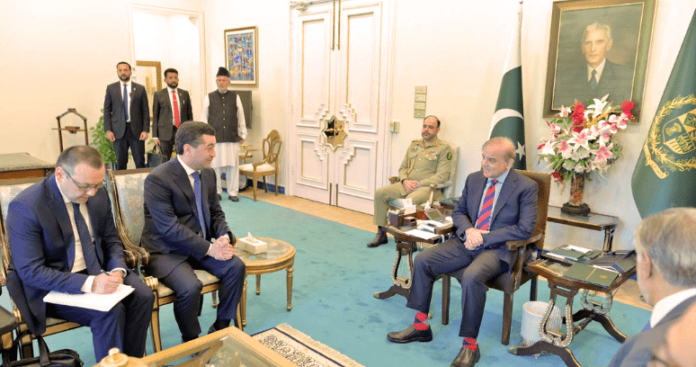Uzbekistan’s Foreign Minister Bakhtiyor Saidov met Prime Minister Shehbaz Sharif and Foreign Minister Senator Ishaq Dar today and highlighted their mutual commitment to expedite the implementation of the Uzbekistan-Afghanistan-Pakistan Railway project. This initiative aims to bolster bilateral and regional trade while serving as a vital link between South and Central Asia.
During a separate discussion, Prime Minister Shehbaz Sharif underscored the significance of the railway project and Pakistan’s dedication to its timely completion. The project, initially agreed upon by Pakistan, Uzbekistan, and Afghanistan in February 2021, envisions constructing a railway line across Afghanistan to connect Central Asia with Pakistani ports, estimated at $4.8 billion.
In July of the previous year, the three nations signed a protocol delineating the project’s route, which stretches from Termiz, Uzbekistan, through Afghanistan’s Mazar-i-Sharif and Logar provinces, culminating in Pakistan via the Kharlachi border crossing in the Kurram district. Scheduled for completion by the end of 2027, the 760km railway project aims to transport up to 15 million tons of goods annually by 2030, significantly reducing cargo delivery time and transportation costs between Uzbekistan and Pakistan.
Prime Minister Shehbaz Sharif reiterated Pakistan’s commitment to collaborating with Uzbekistan to expedite and finalize all bilateral trade and connectivity ventures. He also affirmed Pakistan’s readiness to grant Uzbekistan access to Pakistani ports. During the bilateral meeting, both sides extensively discussed economic cooperation, trade, investment, and connectivity.
They acknowledged a 1.4 times increase in bilateral trade during the previous year following the operationalization of the Transit Trade Agreement and aimed to achieve the targets set during the last Inter-Governmental Commission (IGC) meeting held in Tashkent in February 2023. Additionally, they agreed to explore new avenues for economic collaboration and stressed the importance of a liberal visa policy, particularly for the business community, to foster closer ties and people-to-people exchanges.


